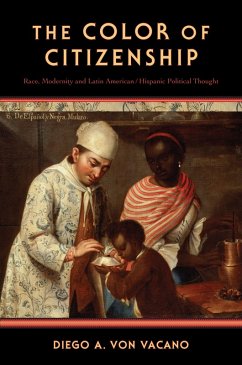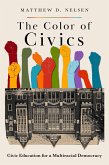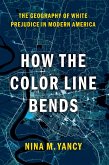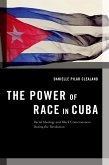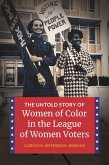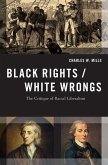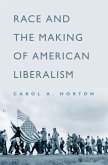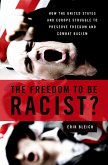The role of race in politics, citizenship, and the state is one of the most perplexing puzzles of modernity. While political thought has been slow to take up this puzzle, Diego von Vacano suggests that the tradition of Latin American and Hispanic political thought, which has long considered the place of mixed-race peoples throughout the Americas, is uniquely well-positioned to provide useful ways of thinking about the connections between race and citizenship. As he argues, debates in the United States about multiracial identity, the possibility of a post-racial world in the aftermath of Barack Obama, and demographic changes owed to the age of mass migration will inevitably have to confront the intellectual tradition related to racial admixture that comes to us from Latin America. Von Vacano compares the way that race is conceived across the writings of four thinkers, and across four different eras: the Spanish friar Bartolom? de Las Casas writing in the context of empire; Sim?n Bolivar writing during the early republican period; Venezuelan sociologist Laureano Vallenilla Lanz on the role of race in nationalism; and Mexican philosopher Jos? Vasconcelos writing on the aesthetic approach to racial identity during the cosmopolitan, post-national period. From this comparative and historical survey, von Vacano develops a concept of race as synthetic, fluid and dynamic -- a concept that will have methodological, historical, and normative value for understanding race in other diverse societies.
Dieser Download kann aus rechtlichen Gründen nur mit Rechnungsadresse in A, B, BG, CY, CZ, D, DK, EW, E, FIN, F, GR, HR, H, IRL, I, LT, L, LR, M, NL, PL, P, R, S, SLO, SK ausgeliefert werden.

